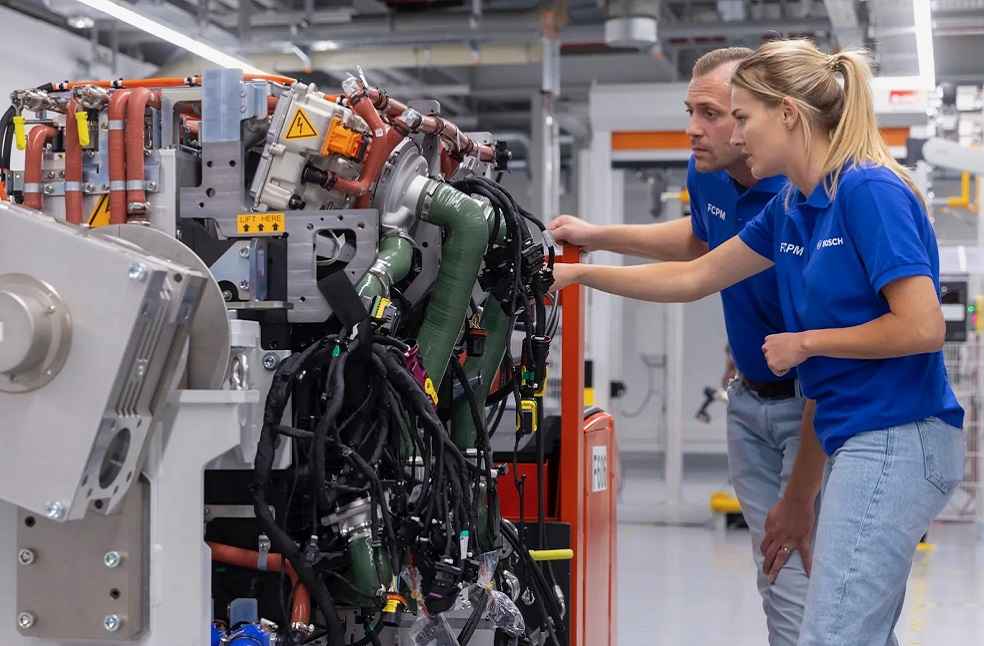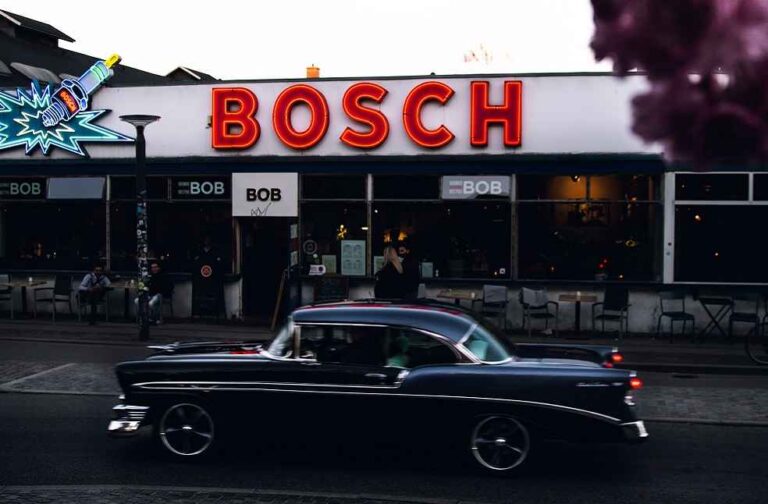German manufacturing colossus Bosch confronts turbulent times as the automotive industry pivots towards electric vehicles (EVs). This shift coincides with dwindling consumer interest, soaring inflation, and a faltering global economy, prompting extensive restructuring and workforce reductions across the corporation.
During Bosch’s disclosure of preliminary 2023 results in March, Board Chairman Stefan Hartung portrayed the situation as exceptionally demanding. “The coming years are going to demand a lot from all of us,” Hartung stated, acknowledging the struggle against economic adversity. Despite these trials, Bosch posted an 8% revenue increase from the previous year, reaching €91.6 billion, with earnings before interest and taxes rising by 5% to €4.6 billion.
Contrasting with its financial achievements, the company’s operational challenges are stark. Bosch recently revealed plans to cut over 7,000 jobs globally, including up to 3,700 in Germany. These measures address the need for competitiveness amidst decreased demand and market saturation.

“The mobility sector transformation is significantly affecting the entire industry and Bosch’s business,” explained Stefan Grosch, Bosch’s human resources director. He noted the difficulties in adapting to new market realities, especially as consumer preferences shift away from trends popularized during the Covid era.
The restructuring announcement sparked extensive worker unrest, with 25,000 Bosch employees protesting across Germany on March 20. The largest protest occurred at the automotive group’s headquarters in Gerlingen-Schillerhöhe, near Stuttgart, drawing over 10,000 participants. Employees are clamoring for a significant role in the company’s transformative decisions, particularly criticizing the substantial investments abroad, such as the nearly €1 billion directed towards new energy vehicle components in China and an EV center in the Czech Republic.
Renowned for its ‘Made in Germany’ quality since its founding in 1886 in Stuttgart, Bosch retains its status as the top automotive components manufacturer worldwide. Yet, the industry’s shift to electromobility, which demands hefty initial investments and employs fewer workers, promises to reshape the sector profoundly.

This transition strikes a resonant chord for Bosch, which garnered over 60% of its previous year’s revenue from automotive sales. The expensive switch from combustion engines to electric powertrains is compounded by economic pressures like relentless inflation and adverse exchange rates. These factors are pivotal as Bosch gears up for a future where traditional roles, particularly in the combustion engine sector, are slated to vanish by 2035 under new EU regulations.
To soften the blow to its workforce, Bosch has secured agreements to safeguard around 80,000 jobs at its German facilities until the end of 2027. Despite these measures, industry observers anticipate that the transformation will inevitably lead to considerable job reductions. Stefan Bratzel from the Center for Automotive Management remarked, “These are very tough times for the auto industry, especially for suppliers. Years ago, we anticipated that the transition would result in about a 20% job loss.”
LATEST | China’s EV Boom Sparks Global Demand for Car-Carrying Ships





